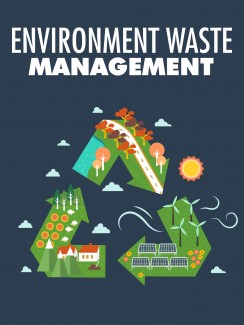 License Type: Master Resell Rights
License Type: Master Resell Rights  File Size: 1,257 KB
File Size: 1,257 KB File Type: ZIP
File Type: ZIP
 SKU: 57552
SKU: 57552  Shipping: Online Download
Shipping: Online Download
Ebook Sample Content Preview:
Chapter 9: Taxes and Expensive Cost in Maintaining Landfill
Operating and maintaining a landfill is never free, as it always comes with some costs. There is the so called landfill tax or levy, which is the kind of tax being used in other countries to increasing the cost of a landfill. This chapter explains more about landfill tax as well as the cost that goes along with landfill maintenance.
Landfill Tax
As mentioned earlier, landfill tax is the form of tax utilized in some countries to increase the landfill cost. Normally, the tax is being levied within currency units for every unit of volume or weight (£/t, E/t, $/yard³). This tax is complementary to the total landfill cost and forms a part of the gate fee, which is the levied charge on a particular volume of waste delivered to a certain waste processing facility.
A fee or tax might be obligatory on landfills or some other disposal facilities as a way to increase general revenues to produce fund for assessment programs or long term alleviation of environmental effects relevant to disposal. Or, it can be as a way to inhibit disposal through increasing the cost as compared with the ideal alternatives in similar approach as a sin tax or excise.
Landfilling is being discouraged because of several primary reasons. Some of them are:
Climate change because of landfill gas coming from biodegradable waste
Losing of resources
Constraints on places right for landfill areas
Loss of waste landfilled recyclable components
Nimby objections that cause some political concerns
In the majority of cases, establishing landfills is the local government’s responsibility. When the study on environmental impact has been completed, permits should be acquired from the federal, local and state governments. Landfill construction’s cost differs based on application fees, engineering cost and location.
For instance, a landfill within Kentucky would operate about $500,000 up to $1M for the design and application engineer cost, yet the fee does not include the landfill liner’s construction. That would cost around $75,000 for each acre. Normally, the money is increased from municipal bonds or taxes. Hence, it is likely that landfill funding could come from the pockets of taxpayers. The maintenance cost will greatly depend on the maintenance approach used by the operator.
- File Size:1,257 KB
- License: Master Resell Rights
- Category:Ebooks
- Tags:2016 Ebooks Master Resale Rights








